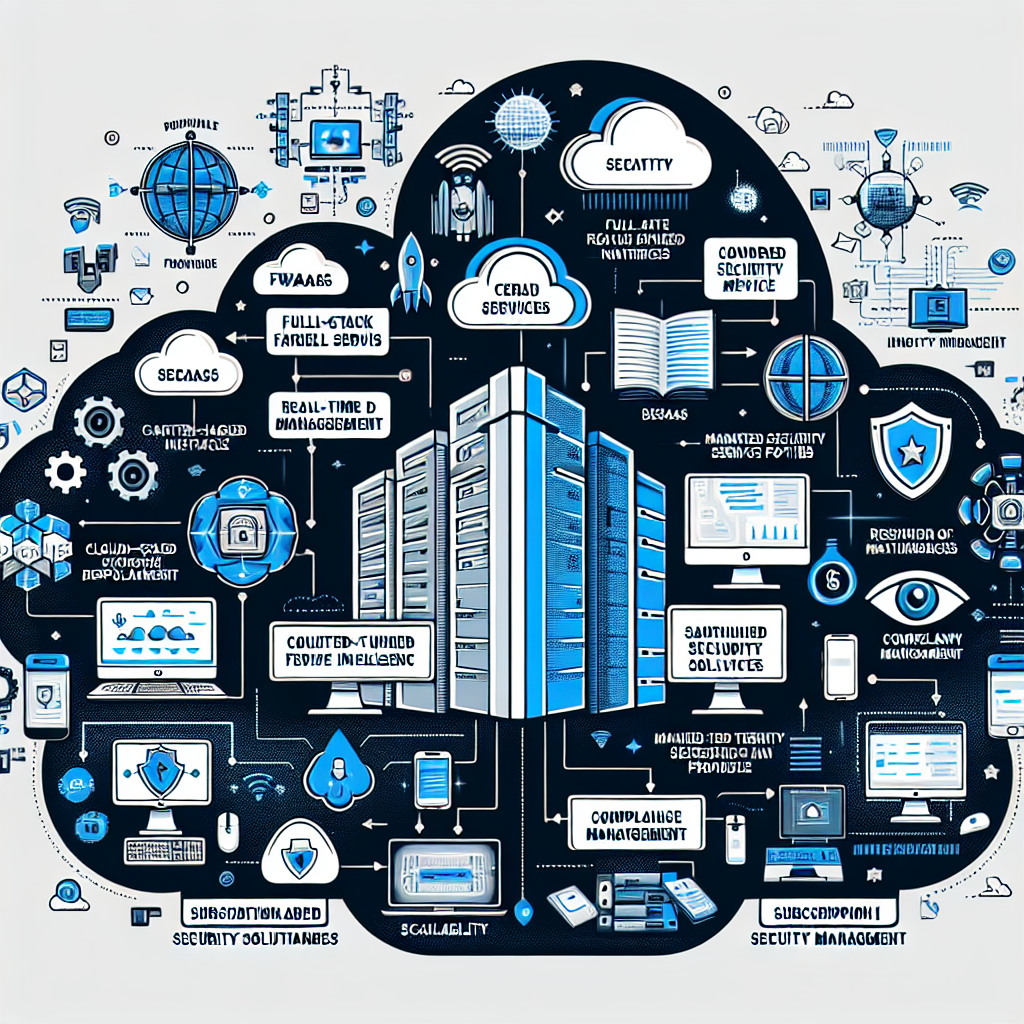
Comparing FWaaS with MSSPs
The digitization of the business also has armed businesses with energy to manage cybersecurity. Some of the typical solutions which many corporations evaluate include Firewall as a Service or FWaaS and Managed Security Service Providers (MSSPs). They come with unique benefits and both serve different purposes but knowing the difference in this case, it does make a lot of sense to know which one you should pick. That way, you can figure out if FWaaS and MSSPs are right for your business while gaining some insights into where they differ from each other as well as how their best – or worst – practices align with these services in 2022.
Definition and Functionality
Firewall-as-a-Service (FWaaS)
Provided as a cloud service, the FWaaS offers firewall functionalities without any hardware requirement on site. A firewall operates in it to enable an organization to get a leased line from them. It allows for security to be offered as services that are scalable, flexible and always up-to-date. Because FWaaS works in concert with established IT systems, it can thwart a wide array of threats like malware and ransomware as well as any other kind of cybersecurity assault.
Key Features
- Cloud-based deployment
- Real-time threat intelligence
- Centralized management
- Scalability and flexibility
- Subscription-based cost model
Managed Security Service Providers (MSSPs)
Managed security service provider (MSSP): A third-party company that provides managed and monitored services to a business’s security infrastructure. Some of the services that they provide are firewall management, intrusion detection, vulnerability scanning and compliance management. MSSPs offer on-site and off-site services for businesses that require full security without keeping their own in-house team.
Key Features
- Full-Stack Security Services
- 24/7 monitoring
- Automatic incident resolution and incident response management
- Tailored security solutions
- Compliance management
Key Differences
Deployment
- FWaaS: Fully cloud-native, can just be spun-up and scaled. Physical hardware and its maintenance are required to some extent.
- MSSPs: Cloud-based, on-premises, or hybrid. MSSPs cater to what is already in place and can blend different security tools/hardware.
Cost Structure
FWaaS: Subscription-based, scale resources based on business requirements. Renting firewalls reduces the upfront cost and includes all maintenance updates.
MSSPs: In terms of revenue generation, a mix between fixed fee and value-based. It provides comprehensive services but the cost could vary depending on the complexity and a wide range of services offered.
Management and Control
- FWaaS: Centralized control using a single dashboard. Real-time control – IT can enforce policies and monitor activities.
- MSSPs: Management is predominantly by the service provider. Businesses get updates and reports but might not be able to directly control day-to-day operations.
Customization
- FWaaS: Pre-defined solutions, but can be customized to some extent depending on possible configurations.
- MSSPs: Customizable, MSSP can tailor a security solution to fit your exact business needs and regulations.
Pros and Cons
Firewall-as-a-Service (FWaaS)
Pros
- Longevity: Future proof; you do not have to worry about physical hardware as your business needs grow
- Scalability: Easily scalable with little effort
- Cost-Effective: Lower upfront cost; predictable operational costs
- Less work: Easy deployment and maintenance; no need for specialized in-house skills
- Flexibility: Able to address security threats and regulatory changes fast
Cons
- May offer limited customization: May not cover all the specific needs of a business compared to more custom traditional solutions
- Fully cloud-based: Will be ineffective during internet connectivity issues
Managed Security Service Providers (MSSPs)
Pros
- Comprehensive Security: Provides a variety of security services involved in many aspects
- 24/7 Monitoring: This leads to faster incident responses due to constant visibility
- Customization: Provides tailor-made solutions based on unique needs and compliance standards
- Expert Advice: Access to teams of cybersecurity experts
Cons
- Cost: Can be expensive, particularly for small businesses
- Control: Companies may feel they give up control over how their security controls are implemented
- Complexity: Integrating more services and tools can be incredibly complex to manage
Case Studies
Example 1: Small Online Retailer Leveraging FWaaS
An online retailer, very small in size, and constantly being bombarded by security threats with limited IT help, has opted for FWaaS. FWaaS offers cost savings and scalability, allowing them to rent firewalls and manage security policies with a centralized dashboard. This made it easy for their small IT team to deliver high-level security without large hardware investments.
Outcome
The retailer gained a heightened security layer, minimized threat landscape, and adequate scalability to cater to peak seasons without compromising protection.
Case Study 2: Financial Institution Leveraging MSSPs
A major financial institution needed fully-managed security services to satisfy strict regulatory requirements. A US-based online retailer with millions in e-commerce revenue invested in an MSSP to manage its entire security infrastructure, including intrusion detection, vulnerability management and compliance reporting. The MSSP provided dedicated solutions and continuous 24/7 monitoring to keep the institution compliant and safeguarded.
Outcome
The financial institution operated with a high level of security and compliance, enabling them to concentrate on business while also checking off key items from the data-security checklist.
Case Study 3: An IT Company of Mid-size Integrating Both
A mid-sized IT company wanted both the flexibility of FWaaS and the enterprise-grade security offered through an MSSP. For their cloud environments, they benefited from scalable protection in the absence of hardware constraints because FWaaS was used while an MSSP handled on-premises security and compliance needs.
Outcome
The adoption of both solutions allowed the company to attain a more well-rounded security strategy leveraging strengths from each solution.
Conclusion
Choosing between Firewall as a Service (FWaaS) and Managed Security Service Providers (MSSPs) is never easy. For businesses that only want to rent a firewall and need security deployed, FWaaS is a great solution providing scalability, cost-efficiency, and ease of extension. In contrast, MSSPs offer custom security solutions that are comprehensive and well-suited for businesses requiring more in-depth protection and compliance to regulations.
Knowing the disparities, strengths, and weaknesses between FWaaS and MSSPs will aid in effectively evaluating which may be best suited for your cybersecurity strategy. There is a solution that fits your business needs, whether it’s scalability and cost-effectiveness or comprehensive security and customization.



